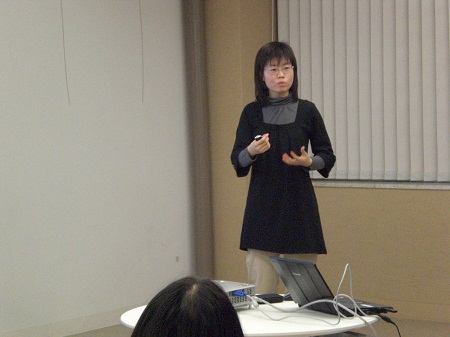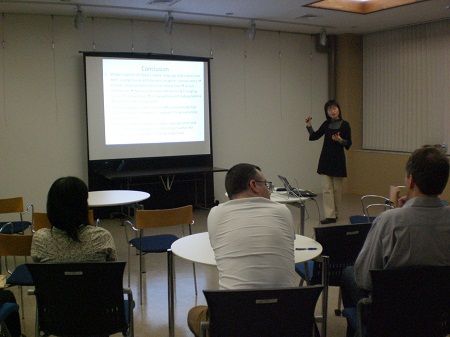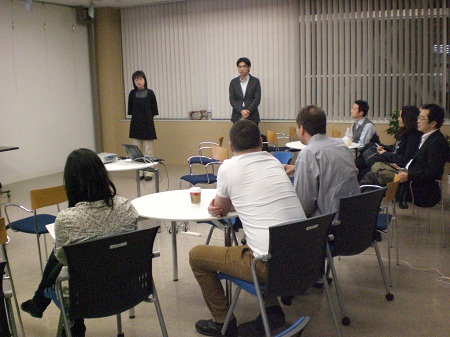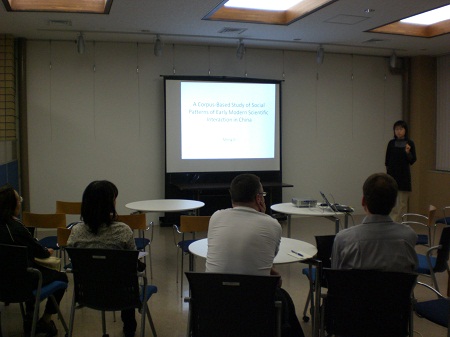‘A corpus-based sociolinguistic study of early modern Chinese scientific translations’
第39回東文研・ASNET共催セミナーが2011年11月10日(木)に開催されました。
以下、報告させていただきます。
日時:2011年11月10日(木)17:00-18:00
場所:東京大学東洋文化研究所 1階ロビー
テーマ:’A corpus-based sociolinguistic study of early modern Chinese scientific translations’
報告者:JI Meng(東京大学東洋文化研究所訪問研究員)


【presentation summary】
ASNET 39 featured Dr JI Meng’s presentation titled A Corpus-Based Study of Social Patterns of Early Modern Scientific Interactions in China. It offered an empirical study of the changing socio-cultural patterns which underlined the introduction, translation, variation and consumption of modern scientific concepts and idea sets into China in the early modern period, i.e. the nineteenth and early twentieth century. The study of early scientific interactions in China has provided a focus of significant research in the past. Dr Ji however pointed out that some of the past studies had fallacies which prevented us from having new and deeper insights into the complex historical process which underscored the construction of China’ modern scientific identity. The two types of fallacies she mentioned were (1) the overt or implicit adoption of the one way diffusionist model of historical analysis, regardless of the theoretical stances of the researchers either in favour or against the Western scientific import into China; (2) focus exclusively on individual texts and/or translators while overlooking the socio-cultural patterns of the selective assimilation of modern scientific input in the modernizing Chinese state. To overcome these fallacies, Dr Ji’s presentation proposed to approach the research topic in light of the empirical data retrieved from newly developed multilingual historical databases. Through the exploration and analysis of primary textual sources, her work had attempted to reconfigure the dynamics and the changing patterns of the cross-cultural and cross-linguistic interaction among different groups of interest and people heavily involved in the development of early modern sciences in China. Dr Ji’s presentation was well attended and received by the audience. The novel research approaches presented in Dr Ji’s talk has prompted active exchange of ideas among the attendees regarding the validity and significance of empirical research methods for digital-based humanities research.
For more details, please refer to Dr Ji’s new book Quantitative Methods in Corpus-Based Translation Studies (with Michael Oakes), Amsterdam and Philadelphia: John Benjamins Publishing. Her current project on the early modern scientific interactions in China at the Institute for Advanced Studies on Asia, University of Tokyo, is due to publish with Brill (Leiden) in 2012.
[JI Meng]



